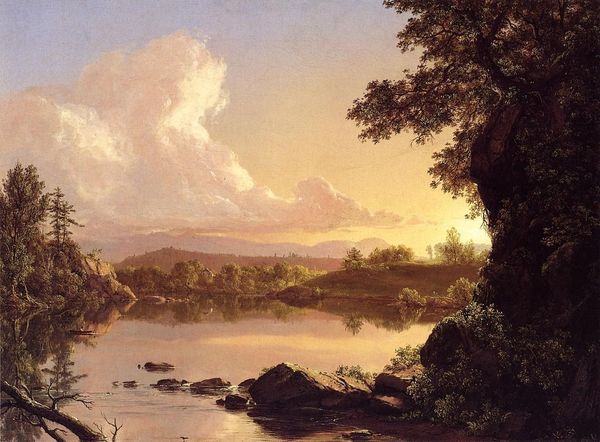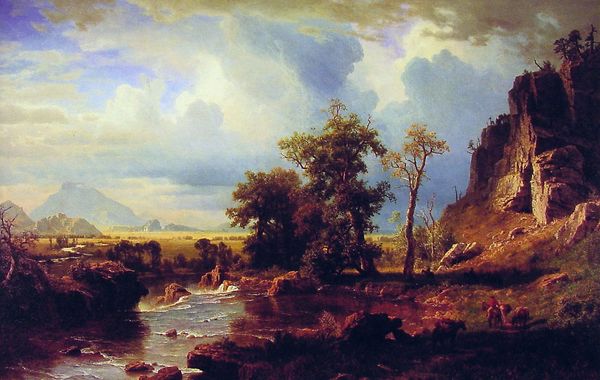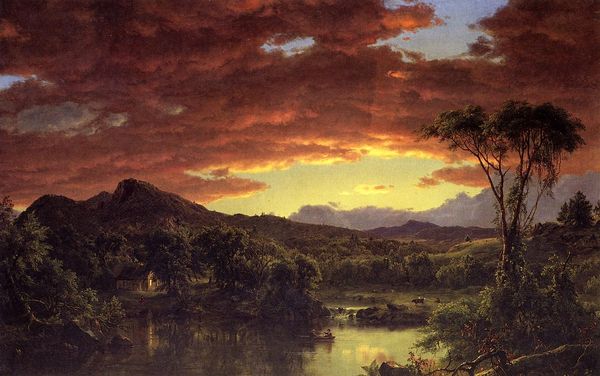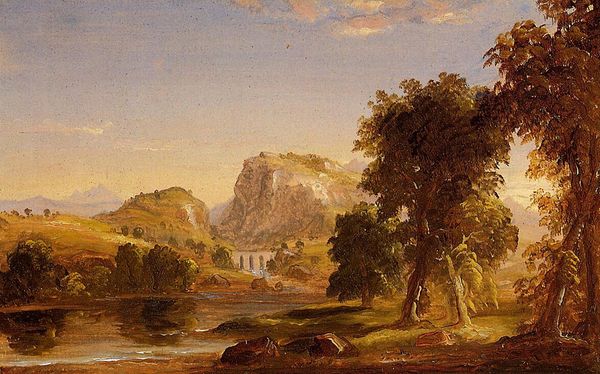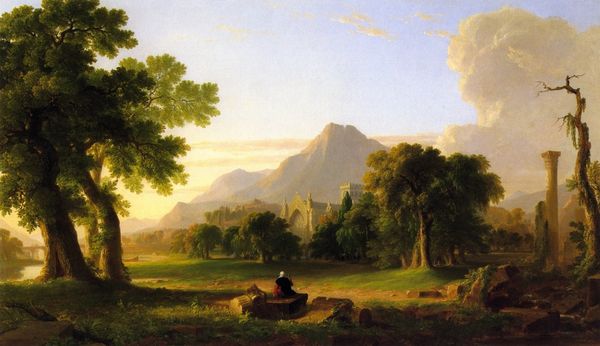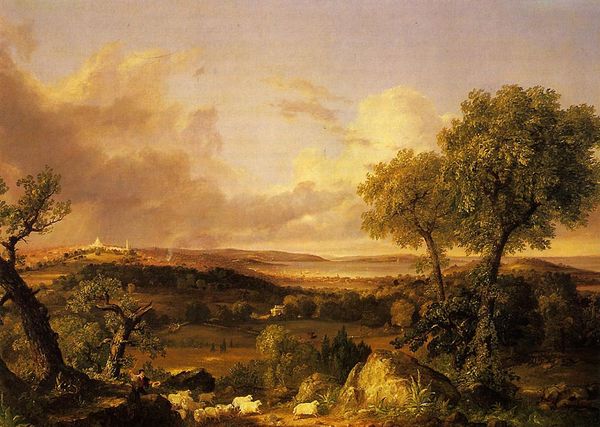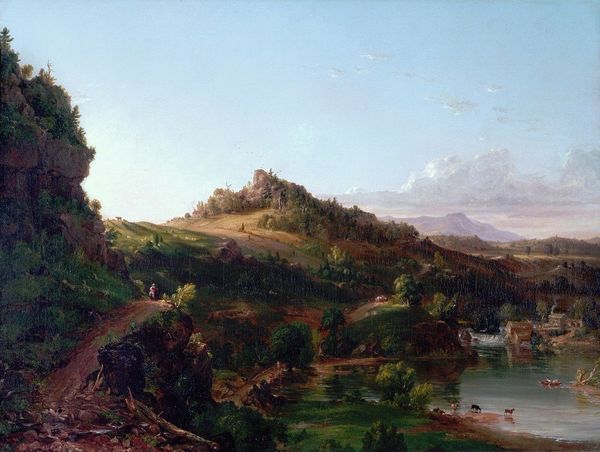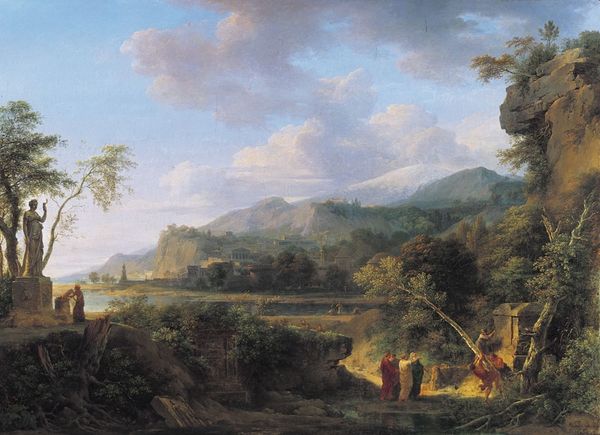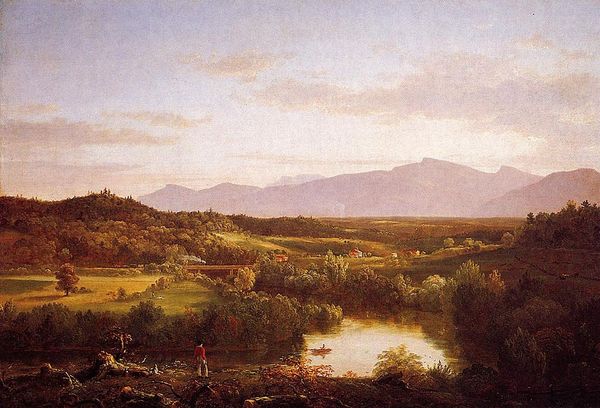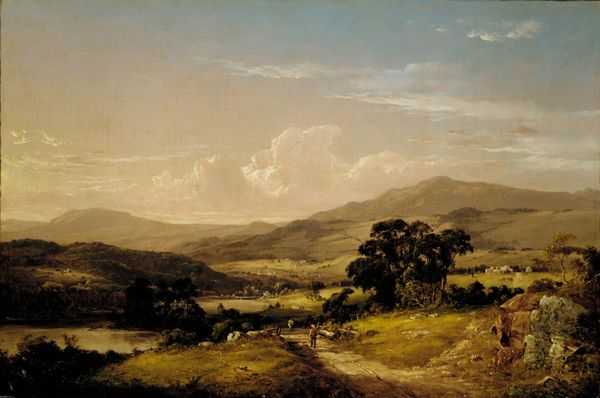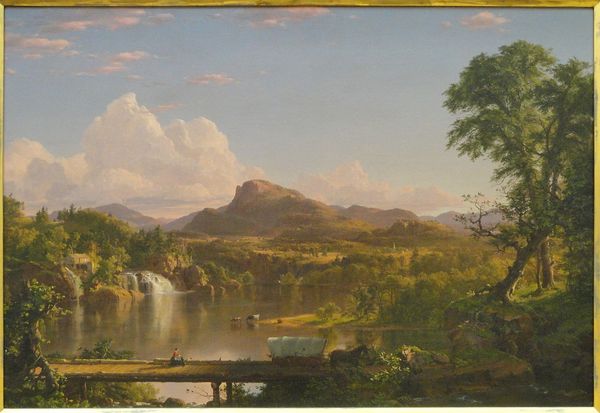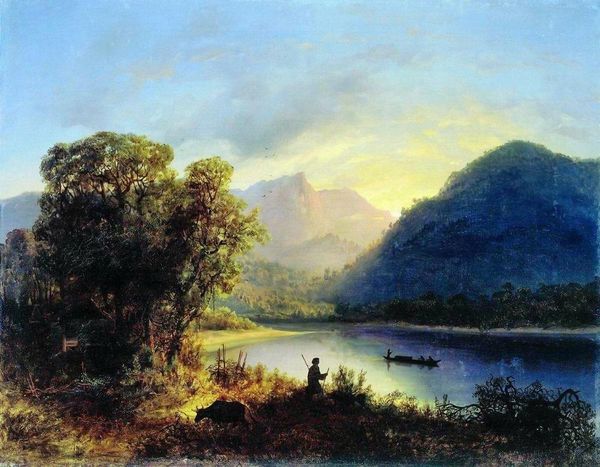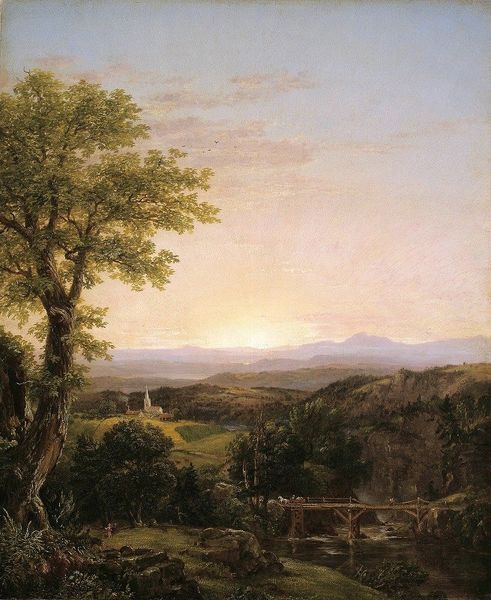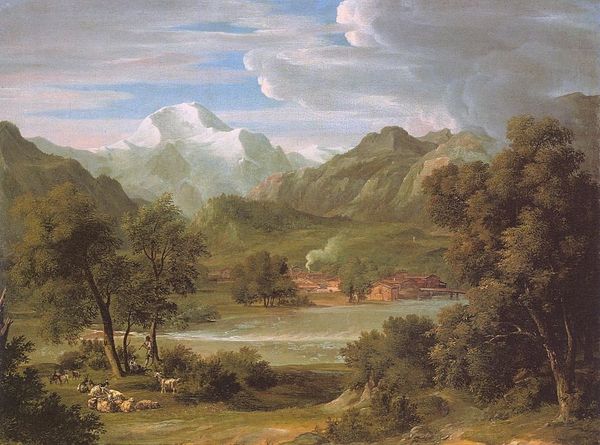
Copyright: Public domain
Frederic Edwin Church captured this landscape with oil on canvas, conjuring a vision of serene, pastoral life. Dominating the background is the mountain, a powerful symbol across cultures, often representing the divine or a sacred space, a place to ascend to enlightenment. We see echoes of this symbolism in art across millennia. Think of Mount Olympus in Greek mythology, the dwelling of the gods. Or the ziggurats of ancient Mesopotamia, man-made mountains designed as bridges between the earthly and divine realms. Even the pyramids of Egypt, with their pointed form reaching towards the heavens, share this symbolic ascent. Over time, the mountain has become a signifier of stability, endurance, and the eternal quest for higher understanding. Perhaps Church was subconsciously tapping into this collective memory. The mountain evokes feelings of awe, aspiration, and the sublime—a reminder of the enduring power of nature and the smallness of man in its shadow. The presence of the mountain deeply engages viewers on a subconscious level, triggering primal feelings associated with the monumental and the eternal. The mountain, as a symbol, undergoes a cyclical progression, forever resurfacing, evolving, and taking on new meanings in different historical contexts, carrying its primal force.
Comments
No comments
Be the first to comment and join the conversation on the ultimate creative platform.
